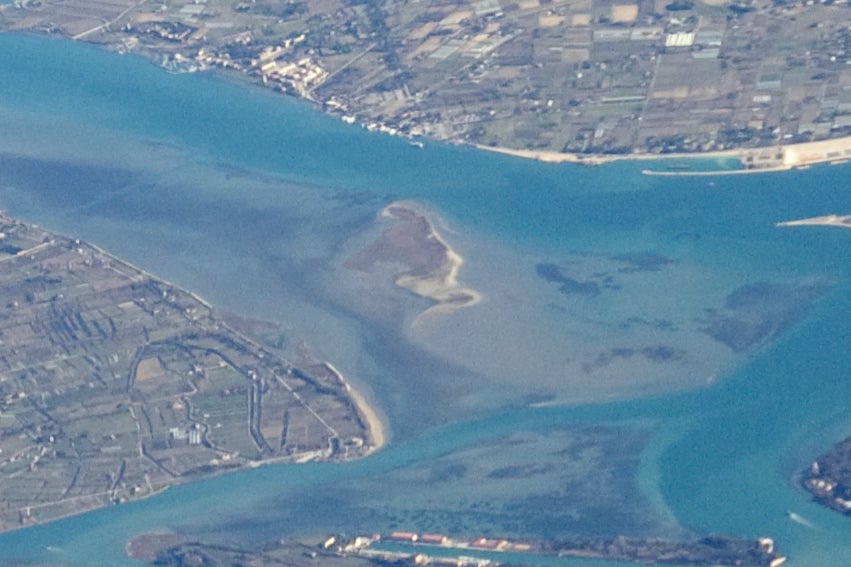A small islet in Venice that used to only pop up during the summer months due to high tides can now be enjoyed year-round thanks to the city’s flood barriers.
Venetians have long enjoyed this secret summer haven called Bacan, a small stretch of sand that appears between Sant’Erasmo and Punta Sabbioni, boasting a fresh ecosystem of flowers and rushes that has thrived in recent years.
Measuring 250 metres long and 10 metres wide, the sandbank has often been visited by Venetians by boat in the summer while tourists swarm the city centre, relaxing on the sands and picnicking with family.
When the winter months come, Bacan has gotten overwhelmed by stormy weather, making it a seasonal trip for those in the know.
However, Venice’s lagoon has recently welcomed a new flood barrier system, meaning Venetians will no longer have to wait for the warmer weather to visit the sandy hideaway.
Venice, spread over 118 small islands, is at risk of disappearing into the sea by as early as 2100 due to rising sea levels and the weight of continuous overtourism, with people and seawater having flooded the streets in recent years.
Yet in 2020, Venice introduced Mose, a flood barrier system placed at various inlets of the Venice lagoon, helping the city and its islands from high tides and mass flooding that the area has experienced.
Giovanni Cecconi, an engineer who worked on the Mose flood barrier told The Times that he believed Mose was behind Bacan becoming a more permanent feature of the lagoon due to it being opposite one of the inlets where the flood barriers have been placed.
The last time Bacan had been submerged was during the winter of 2020.
“The barrier … accelerates the flow of water into the lagoon when it is open, meaning more sand comes in, helping sustain Bacan,” said Cecconi.

“And by raising the barrier in winter to stop high waters, the island is protected from the surges that used to erode it,” he added.
The engineer added that the island’s new vegetation due to the reduction of the high tides should protect it from further erosion.
However, some disagree that Mose is actually helping the lagoon’s ecosystem, such as Andrea D’Alpaos, a hydrologist from Padua University, who told the…
Click Here to Read the Full Original Article at The Independent Travel…
